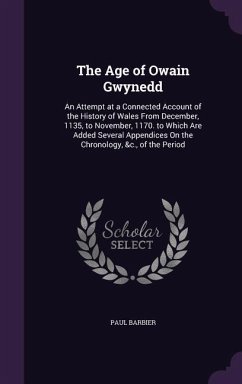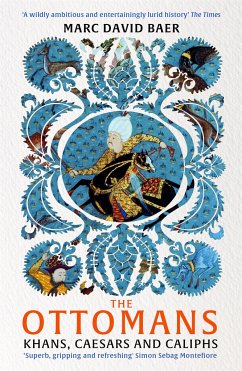
The Revolt of Owain Glyn Dwr
Versandkostenfrei!
Versandfertig in 1-2 Wochen
155,99 €
inkl. MwSt.

PAYBACK Punkte
78 °P sammeln!
Owain Glyn Dwr is arguably the most famous figure in the history of Wales. His revolt (1400-1409) was the last major Welsh rebellion against English rule. It established a measure of unity such as Wales had never previously experienced and generated a remarkable vision of Wales as an independent country with its own native prince, its own church, and its own universities. In the event, Owain's rebellion was defeated or, perhaps more correctly, burnt itself out. But Owain himself was not captured; and soon after his death he became a legendary hero among the Welsh people. In more recent times h...
Owain Glyn Dwr is arguably the most famous figure in the history of Wales. His revolt (1400-1409) was the last major Welsh rebellion against English rule. It established a measure of unity such as Wales had never previously experienced and generated a remarkable vision of Wales as an independent country with its own native prince, its own church, and its own universities. In the event, Owain's rebellion was defeated or, perhaps more correctly, burnt itself out. But Owain himself was not captured; and soon after his death he became a legendary hero among the Welsh people. In more recent times he has come to be regarded as the father of modern Welsh nationalism. Written by one of Britain's leading medieval historians, this book will appeal to those who are fascinated by national heroes in all periods. It is also of particular interest to those who are intrigued by this most famous movement in the history of Wales, and by the remarkable man who led the rebellion.














